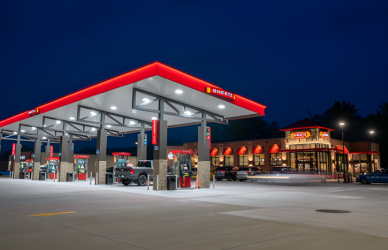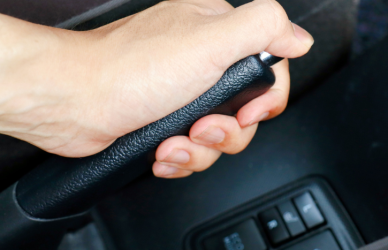California truckers are urging Governor Gavin Newsom to sign a bill that could save their jobs in the face of the fast-approaching self-driving truck revolution. With the advent of autonomous technology, there are mounting concerns about the safety of these giant vehicles on public roads and the potential loss of truck-driving jobs across the state.
The proposed legislation would prohibit self-driving trucks weighing over 10,000 pounds from operating on public roads unless a human driver is onboard. This would encompass a wide range of vehicles, from UPS delivery trucks to massive semi-trucks. Advocates argue that this measure is necessary to ensure public safety and safeguard employment in the trucking industry.
If signed into law, these regulations would remain in force until at least 2029. California lawmakers, union leaders, and truck drivers are rallying behind this bill, recognizing the need to strike a balance between technological advancements and job preservation.
Republican Assemblymember Tom Lackey, who co-authored the bill, emphasizes that lawmakers are not opposed to technology. Rather, they view the bill as a means to enable companies to safely conduct trials of self-driving trucks.
“We want balance because we believe in people, and we believe in public safety,” Lackey said. “When surprises happen, physics is not your friend.”
The bill easily passed through the Legislature, with only a small number of lawmakers opposing it. This bill is part of the ongoing discussions surrounding the potential risks of self-driving vehicles and how the workforce will need to adapt to the new era of technology replacing human labor.
Even though Governor Newsom typically receives strong support from labor, there is some internal pressure within his administration for him not to sign the bill. He has until October 14th to make a decision. The Department of Finance within his administration estimates that implementing the bill’s requirements will cost the state about $1 million each year, and the Office of Business and Economic Development warns that it will encourage companies developing self-driving technologies to move out of state.
“Our state is on the cusp of a new era and cannot risk stifling innovation,” Dee Dee Myers, the office’s director and senior adviser to Newsom, said in a letter opposing the bill.
Opponents of the bill argue that regulations for self-driving trucks should be determined by the state’s Department of Motor Vehicles and road safety experts. They point out that self-driving cars currently on the road have not caused as many serious accidents as human-driven cars. Businesses believe that self-driving trucks would improve product transportation efficiency in the future.
The bill comes at a time when the debate over autonomous vehicles is intensifying. In San Francisco, two robotaxi companies have recently received approval to operate in the city at all hours. Concerns have been raised, however, about these vehicles suddenly stopping and causing traffic disturbances. In Phoenix, self-driving trucks have been tested on highways and utilized for mail delivery in collaboration with the U.S. Postal Service.
In Sacramento, supporters of the bill, including truck drivers and union leaders, rallied at the state Capitol. They wore shirts representing the International Brotherhood of Teamsters, a significant union backing the bill, and chanted “sign that bill” as a parade of semi-trucks lined the street in front of the Capitol. Some of the chants were passionate, with explicit language, as they urged Governor Newsom to support their cause. According to Teamsters officials, there are approximately 200,000 commercial truck drivers in California.
Mike Di Bene, an experienced commercial truck driver and member of the Oakland Teamsters chapter, emphasized that human drivers possess intuition and experience to quickly adapt to unexpected situations, such as black ice or a blown-out tire on the freeway. He believes self-driving technology lacks the ability to comprehend the immense risks involved in operating large vehicles at high speeds.
Brian Rice, president of the California Professional Firefighters union, stressed the importance of communication between first responders and commercial truck drivers in case of emergencies, particularly when hazardous materials are involved.
“Hazardous materials are everywhere,” Rice said. “We don’t need robots driving these materials around.”
Legislative battles over labor issues were prominent this year, with efforts to increase wages for healthcare workers, extend unemployment benefits to striking workers, and allow legislative staff to unionize. Meanwhile, hotel workers, Hollywood writers, and actors are also on strike.
Back in 2012, then-Governor Jerry Brown imposed a law stating that companies must obtain approval from the Department of Motor Vehicles (DMV) before deploying their self-driving vehicles on public roads. Despite opposition from DMV leaders, who believe regulation should remain within their agency, the legislation stands.
In a letter to Assemblymember Cecilia Aguiar-Curry, who introduced this year’s bill, the DMV disclosed that self-driving vehicles have traveled a massive 18.3 million miles (29.5 million kilometers) since 2014 in California, with no fatalities reported. The few collisions that did result in serious injuries were not deemed entirely the fault of autonomous vehicles.
Director of the California DMV, Steve Gordon, highlighted in the letter that the department conducts thorough investigations into accidents involving self-driving vehicles to determine the root cause. If a vehicle is found to pose a significant risk to public safety, the department has the power to suspend or revoke the company’s testing permit.
The proposed bill will require the DMV to provide regular reports to the Legislature on the safety of medium- and heavy-duty self-driving trucks. Companies will also be obligated to report any collisions resulting in property damage, injury, or death within a 10-day timeframe.
Source: The Trucker











